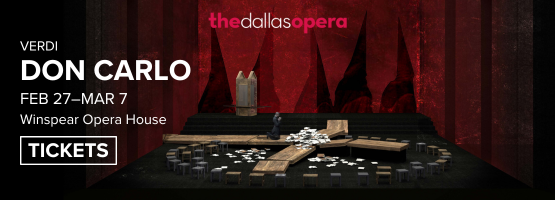Though we always take pride in our lone star moniker, Texas has ignited a galaxy of stars across the art world. From film, visual and performing arts to singers and songwriters to fashion and architectural designers, the state produces true creative innovators. And to celebrate that Texas art pride, every two years the Texas Cultural Trust puts on the ultimate star-gazing party, a.k.a. the Texas Medal of Arts Awards.
“There’s this perception that we may lack a little bit of culture,” explains Texas Cultural Trust CEO Heidi Marquez Smith. “So much has been developed and cultivated here that we should be proud of and we should be aware of.”
The 2023 ceremonies on Feb. 21 and 22 stand as a good example of how the awards put a spotlight on Texas artists creating nationally and at home. Two of this year’s award recipients, film and television actor Luke Wilson and country western singer/songwriter Miranda Lambert, are well-known Texans. But the awards also give us some likely “Surprise!—They’re Texan!” reveals, like lifetime achievement award-winner, Broadway legend Carole Cook (born in Abilene), Yellowstone creator, filmmaker Taylor Sheridan (Weatherford) and five-time Grammy winner, 80s-soft rock “Sailing” king and San Antonio native Christopher Cross.
“It’s extremely important to us that Texans feel a part of the work that we do,” says Smith.
The process ensures that not only do stars like Luke Wilson make the list but also those creators whose faces we might not so readily recognize. It also awards those who have done great creative work within the state and those who have taken the Texas arts spirit beyond our borders.
Visual artist honoree Deborah Robert’s multimedia work can be found in the collections of national and international museums, but she continues to create in Austin, as does Miró Rivera Architects, winning international architectural awards while working in Austin. The Texas Medal of Arts Awards also metaphorically stamps a kind of Made in Texas label on some of our most celebrated exports like dance honoree, choreographer and Hong Kong Ballet artistic director Septime Webre (originally from Brownville) and Dallas-raised, New York-based fashion designer Lela Rose.
“Part of this event is to bring those individuals to the forefront, for Texans to recognize that there are so many people out there making a difference and inspiring others that are from Texas,” describes Smith.

1 ⁄6
Texas Medal winner Luke Wilson. Photo by Matt Lankes.

2 ⁄6
Texas Medal winner Septime Weber. Photo courtesy of the artist.

3⁄ 6
Texas Medal winner Christopher Cross. Photo courtesy of the artist.

4 ⁄6
Texas Medal winner Deborah Roberts. Photo courtesy of the artist.

5 ⁄6
Juan Miro; Photo courtesy of the artist.

6 ⁄6
Miquel Rivera; Photo courtesy of the artist.
The Texas Medal of the Arts have always given the stage to those behind the scenes stars like educating organizations and arts patrons, but this year they’ve opened a new category, Arts in Health. This year’s Medal honors the work by Houston Methodist’s System Center for Performing Arts Medicine, which offers specialized health care for performing artists, integrates the performing and visual arts into hospital environments and does research on using art in some therapeutic practices.
“We have learned, especially during COVID, that the arts became an emotional salve and a way to improve the lives for people who work in hospitals,” explains Smith.
“It’s not sustainable to only fund the arts privately. We need to garner support from the state so that everyone has access,” Smith emphasizes. “We have such a rich cultural heritage. So many people have come from Texas and developed their talent here because they had access to the arts at some point in their lives. We need to cultivate that.”
—TARRA GAINES




